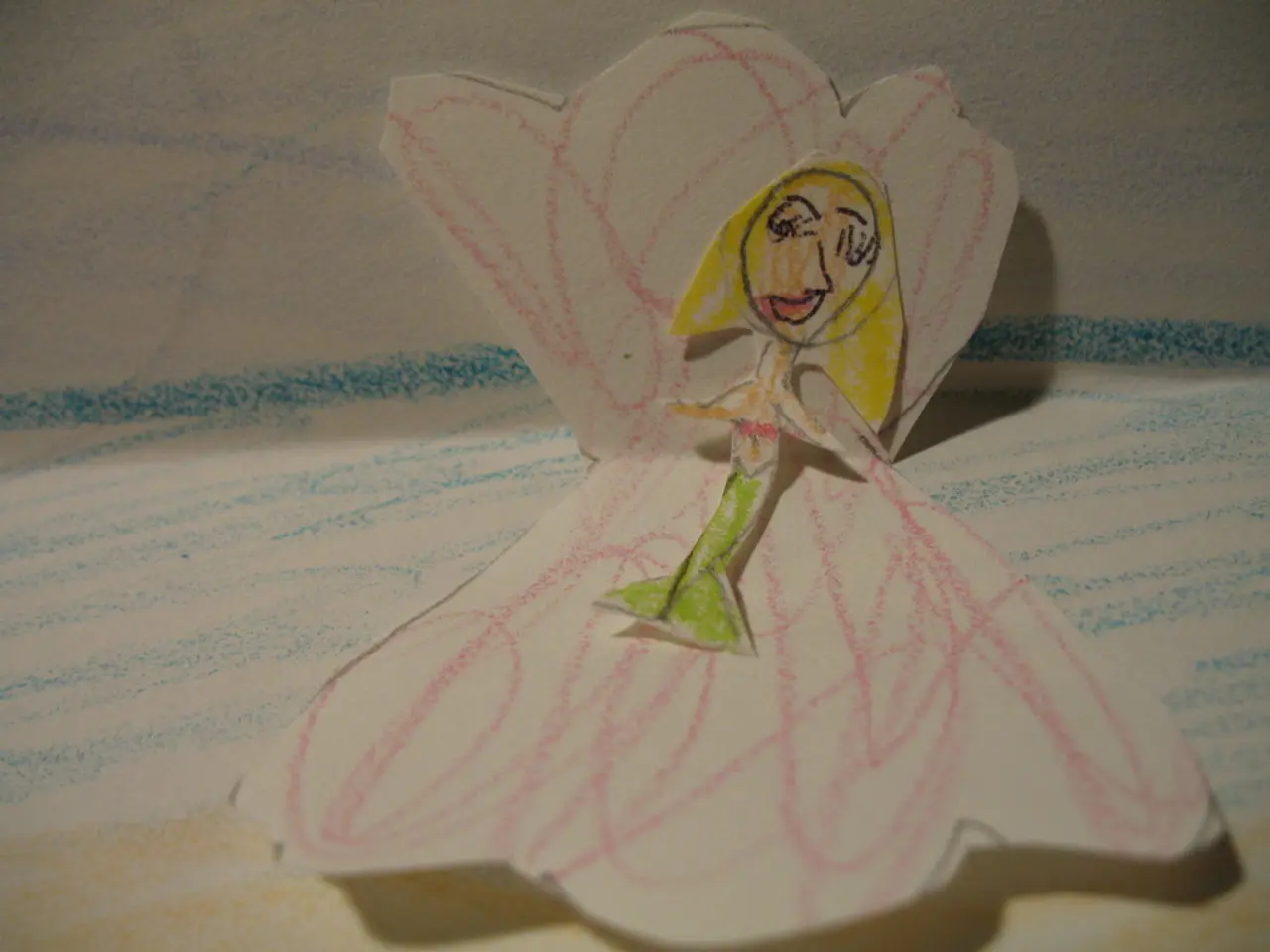Artificial Intelligence and Its Impact on Human Imagination and Innovation
The intersection of artificial intelligence (AI) and human creativity is a topic of significant debate. As AI rapidly reshapes society, affecting both industries and personal lives, concerns about its impact on human creativity are rising.
Potential Threats
One concern is the flattening of originality. AI-generated content often recycles similar ideas, reducing variety and originality in creative output, leading to homogeneous results [1][2]. Over-reliance on AI could also weaken deep understanding, reading comprehension, and cognitive skills necessary for originality and problem-solving [1][4].
Economic and existential risks are another worry. AI can make certain creative jobs redundant and may stifle innovation if human creative instincts are replaced or ignored [1][4]. There is also a fear that persistent use of AI could lead to "skill atrophy," as the mind is seen as a muscle that improves with exercise [5].
Key Benefits
However, AI is not merely a threat to human creativity. It can act as a powerful tool to accelerate ideation, handle repetitive or data-intensive tasks, and generate new creative combinations, freeing humans to focus on emotional, cultural, and strategic input [2][3].
AI enhances artists' capabilities without replacing human insight, emotion, or cultural context, thereby expanding the frontiers of creativity by combining human intuition with AI’s processing power [3]. In fields like marketing, AI enables faster content production and volume scaling, while humans provide emotional resonance and originality critical for impactful work [5].
A Balanced Approach
The development of AI is not set in stone, and it's the responsibility of everyone, particularly those involved with AI, to shape its development. Fostering human skills such as critical thinking, emotional intelligence, and creative problem-solving alongside AI is essential to avoid passive reliance and maintain originality and depth [1][4].
Embracing AI as a creative partner — not a replacement — and investing in human capital development is critical for sustaining and enhancing human creativity in the AI era [2][3][4]. AI can assist creatives in automating repetitive tasks, allowing more time for problem-solving and innovation.
In summary, the impact of AI on human creativity encompasses both threats and benefits. By understanding these aspects, we can navigate the AI era with a balanced approach, ensuring that human creativity continues to thrive.
| Aspect | Threats | Benefits | |---------------------|---------------------------------------------------------|---------------------------------------------------------| | Creativity | Repetitive, less original output; flattening of ideas | Accelerates ideation; handles routine tasks | | Cognitive skills | Decline in critical thinking, comprehension | Frees humans for strategic and emotional work | | Economic impact | Job redundancy, potential innovation stifling | Enhances human creative capabilities and efficiency | | Emotional depth | AI lacks emotional and cultural understanding | Human insight adds cultural, ethical, and emotional depth|
AI, when over-relied upon, could potentially weaken human creativity by flattening originality and reducing variety in creative output, leading to homogeneous results. However, AI can also act as a tool to accelerate ideation, handle repetitive tasks, and generate new creative combinations, allowing humans to focus on emotional, cultural, and strategic input.




